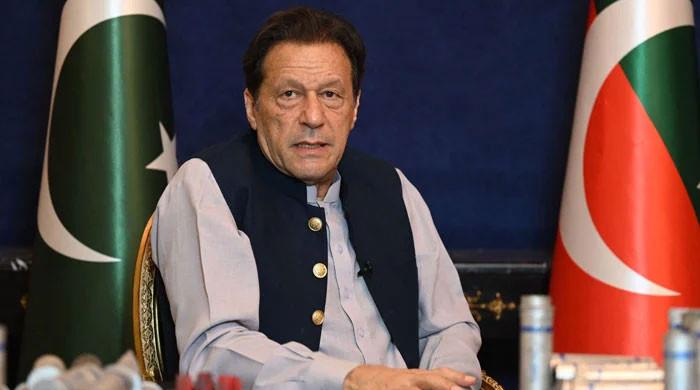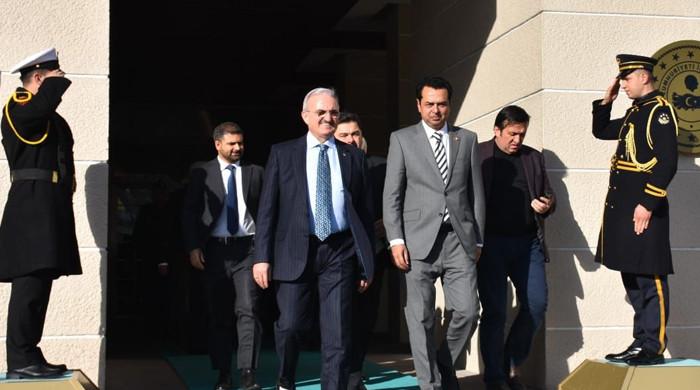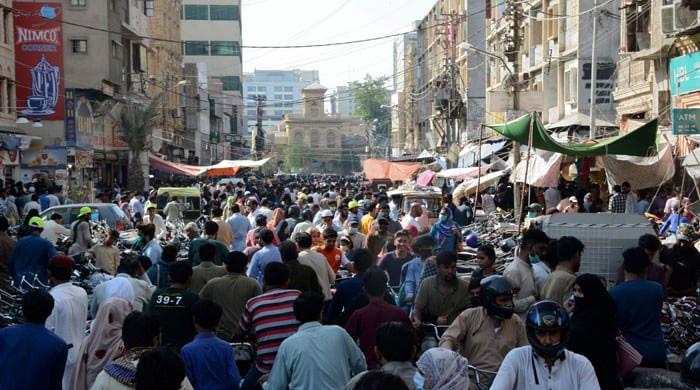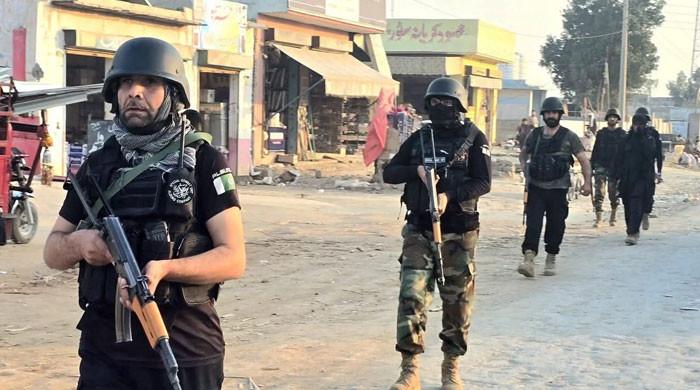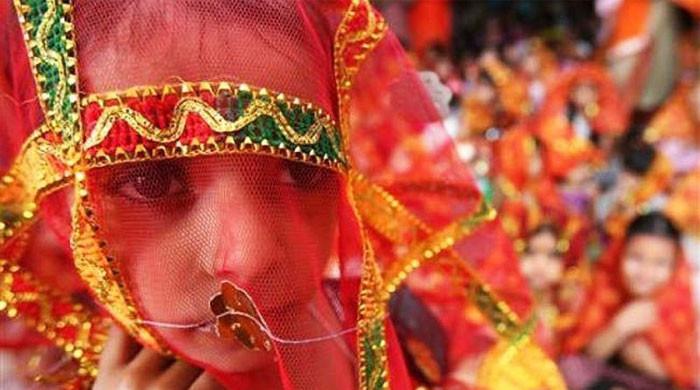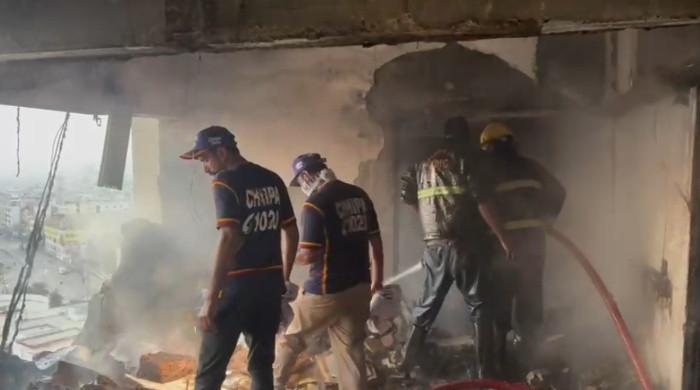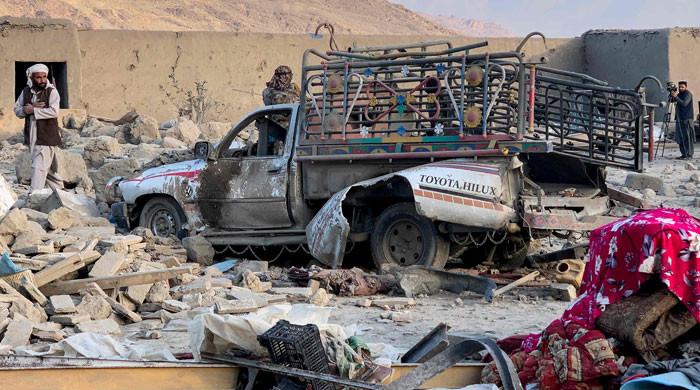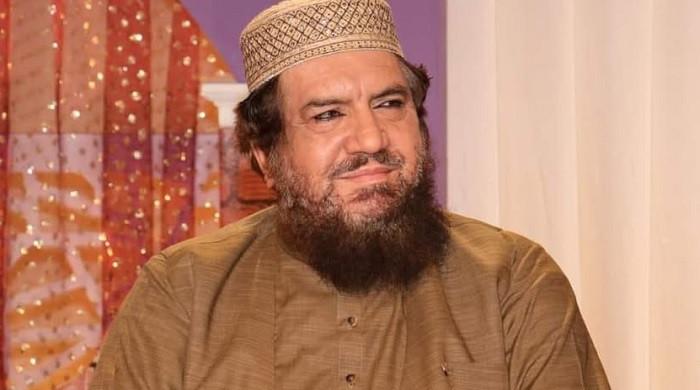Independent monitoring of polio can help Pakistan’s anti-polio drive, says Rana Safdar
National Coordinator for Polio Eradication speaks to Geo News about the fresh outbreak of disease in Pakistan
January 16, 2020
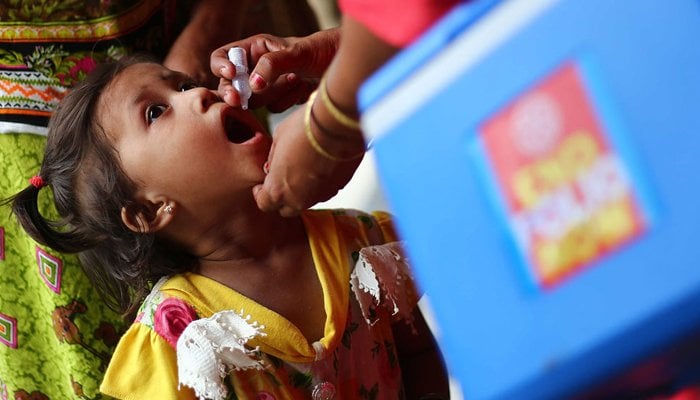
Geo.tv talks to Dr. Rana Muhammad Safdar, the national coordinator for polio eradication, about why Pakistan failed to stop the fresh outbreak and transmission of the polio virus across the country.
What is the single biggest reason for the recent outbreak and reemergence of the polio virus in the country?
The reason is simple. There were many children last year with weak immune systems. In 2019, 135 cases of the polio virus were reported in Pakistan. This shows whatever measures were undertaken, by the local polio campaign to increase immunity in children, were not effective.
Now, there are two immunity-boosting interventions our campaign is pushing. One, as per routine, a child after birth needs to be administered oral polio drops four times: at birth, at the age of six weeks, ten weeks and 14 weeks. Also, at 14 weeks, a vaccine should be given via an injection.
This schedule must be followed. Polio vaccines are free of cost. There are no reasons to avoid them. Even if a parent misses one step of this procedure a child can be at risk of being infected. Second, if a health worker arrives at your door, do not refuse them. Even if your child has been vaccinated already.
How will you ensure that the anti-polio campaign in 2020 is effective?
What really haunted us in 2019 was the misinformation and negative propaganda about our door-to-door campaigns. A fake video surfaced on social media that showed children falling ill after taking polio drops.
In April, some children died in Peshawar due to unrelated causes, but that too was falsely blamed on polio drives. That fake news spreads so rapidly is why we had to stop our campaigns across Pakistan for a few weeks. It was a huge setback.
There is a media outlet, as well as a television anchor who has targeted the polio campaign. What action can be taken against such groups or individuals?
I agree. We expect people to be more responsible when it comes to national causes. But that doesn’t always happen. We are constantly in touch will all major news outlets these days and do not have any concerns.
A big challenge for us now is the social media. I can tell you that the new government has taken notice of this issue and in the future action will be taken against those who spread fake news about vaccinations campaigns.
The previous focal person for polio had promised a national campaign in the country to tackle myths about the anti-polio drive and to reduce refusals. When will it be rolled out?
We have prepared a very comprehensive communication strategy. It has three levels of engagement. One, we have mapped out all those areas where misinformation is most prevalent. We have identified how the false propaganda is being spread, by whom and also who are the people the local communities trust the most.
Secondly, there are demand-based refusals. For example, in Bannu, traders who did not want to pay tax tried to take the polio campaign hostage. Now, we are building alliances with all such associations.
Thirdly, 90 per cent parents can be reached through conventional media. Parents will be encouraged through television, print and radio to ensure that their children are vaccinated and the children in their neighborhood are as well. As you know, polio is contagious.
In recent months, vaccine-derived polio virus has been reported in countries where polio had been previously eradicated.
Yes, that is very true. There are over 20 countries from where this kind of polio virus is being reported. Let me first explain what a vaccine-derived polio virus is.
In the vaccine that we give there is a live polio virus, which is treated and the element that causes the virus is removed from it. However, this virus in the vaccine, if it gets a favorable environment over several years, it can mutate and the virus can become active again.
When wild polio virus was eradicated from the world back in the 1998, it was decided to remove this inactive polio strain from the vaccines. In April 2016, all such vaccines were to be removed or destroyed.
During this time, in countries where health systems were weak such vaccine were continued to be used, unfortunately. In Pakistan, there were 18 cases of vaccine-derived poliovirus.
National elections are often cited as one reason for disrupting anti-polio drives, especially since health workers are required to perform election-related duties instead. What can be done to ensure continuation of the program, regardless of change in governments?
Yes, an independent polio monitoring program would definitely help. In last few years, this has been a repeated pattern. The year after polls, there is an upsurge in polio cases, since key administrative positions are changed or transferred.
This is a massive task. We have to vaccinate 40 million children. There are over 200,000 health workers. It is a meticulously planned initiatives. We must ensure that before the next political transitions we get rid of polio for good.
Which are the core reservoirs in Pakistan?
The biggest is Karachi because of its large population and the movement of its population. There are two other core reservoirs which have been a safe haven for polio virus since a few decades now: Peshawar and the Khyber area, as well as the Quetta belt.




